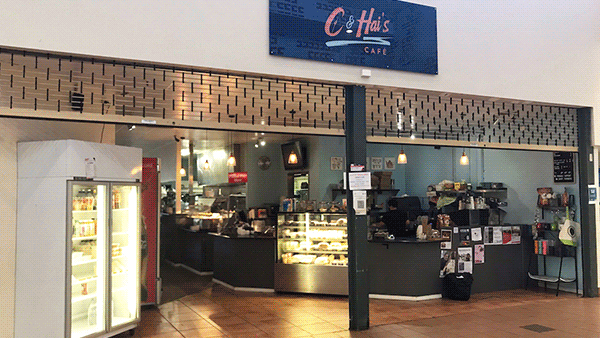Cafe owner struggles to find manager as housing crisis grips mining town

Chris Bleach, owner of C&Hai's Cafe in Port Hedland, faces a dilemma common to businesses in the Pilbara mining town: finding workers and affordable housing for them.
"We've been trying to find a manager," says Bleach, who has been attempting to sell his business since last year. “Finding that kind of position is really hard because the biggest problem here is accommodation. You’re going to be paying someone close to $100,000 just [as a salary], and the only way to get a manager here is to offer accommodation, which means straight away you’re looking at $150,000 a year. It would mean we wouldn’t be making very much out of the cafe.”
The 68-year-old cafe owner notes that despite wages more than a third higher than those in Perth, "a normal person who works in a cafe or as a hairdresser can't afford the rental" in Port Hedland.
This Western Australian town of 15,000 people exemplifies the paradox facing many regional areas: desperate for workers yet hamstrung by severe housing shortages. Mayor Peter Carter highlights the extreme wages required, noting, "In Broome they were advertising for a barista for $100,000 a year. That's why your coffee costs you $8."
Port Hedland's housing market has experienced dramatic fluctuations. During the mining boom, property prices peaked at $1.2 million in 2012 before crashing to $361,825 by 2017. Recent concerns about dust in the West End prompted a $200 million industry-funded buyback of more than 400 homes, further reducing available housing.
“They’ve easily bought out most of the housing between the shopping centre and West End which used to be the centre of Port Hedland. They bought them and knocked them down. Rather than fix the dust problems from the port operations they decided they would move them to South Hedland. It’s not as nice to live, there’s no sea breeze so it’s five degrees hotter. They’ve [also] got lots of social problems … which makes South Hedland not very attractive.”
Now, with property values rebounding to a median of $665,520 and an investment pipeline of $177 billion in new projects, the worker shortage is becoming critical.
"We need 60,000 workers in the next five years alone," Mayor Carter said. "Five percent of Australia's GDP comes out of Port Hedland, $400 million a day in revenue."
For small business owners like Bleach, the town's two-speed economy means competing with mining giants for both workers and housing. His cafe pays between $38 to $45 per hour, about $10 more than Perth rates, yet struggles to retain staff who are often lured away by mining companies.
The rental market is "ridiculous," according to Bleach, with decent accommodations quickly snapped up by mining companies. A four-bedroom house rents for approximately $2,500 weekly, while even older three-bedroom homes command around $1,000 per week.
Construction costs compound the problem. "A vacant block is selling for $450,000, which is ridiculous," says Bleach. "A house that would cost you $200,000 to build in Perth is going to cost you $800,000" due to cyclone-rating requirements.
Regional Capitals Australia, chaired by Mayor Carter, is lobbying the federal government for changes to migration settings to direct new arrivals to regional areas, along with infrastructure funding to support them.
Bleach agrees migration is key and is pursuing the Designated Area Migration Agreement program. "At one stage we were down to two doctors for a town of 12,000 permanent residents and another 6000 FIFO workers," he noted, highlighting how the crisis extends beyond hospitality to essential services.
Jonathan Jackson, 23rd April 2025







